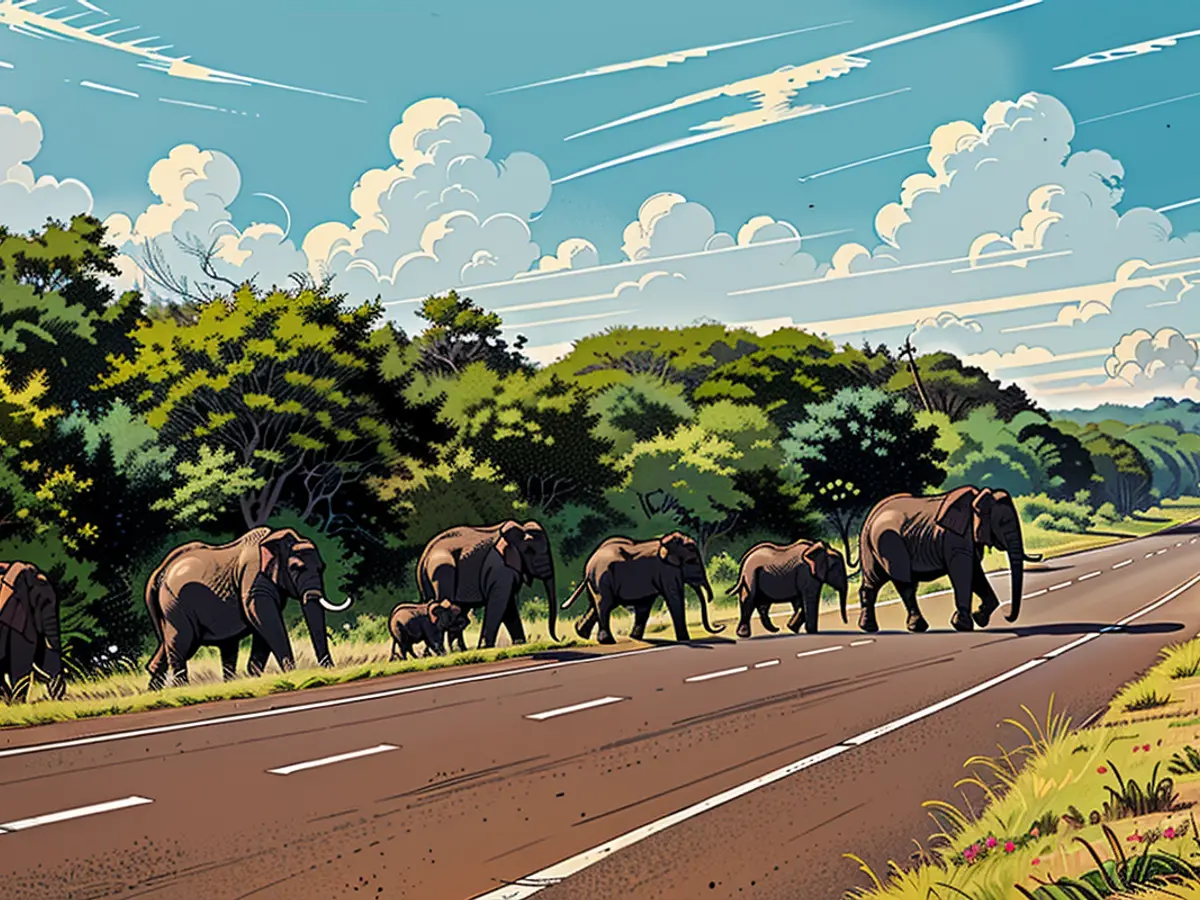Amidst drought-induced challenges, Zimbabwe contemplates culling approximately 200 elephants.
In the face of an extreme drought and subsequent food scarcity in Zimbabwe, the authorities have decided to reduce their elephant population by 200 animals. This move, they claim, is necessary to manage the escalating elephant population, as stated by the relevant authority. The Environmental Ministry in Harare noticed that Zimbabwe currently has more elephants than it can handle. As a result, they have directed the Parks and Wildlife Management Authority (ZimParks) to initiate elephant hunts.
The 200 elephants will be hunted in areas where human-elephant conflicts have been prevalent, such as Hwange, which holds Zimbabwe's largest game reserve. According to ZimParks' General Director, Fulton Mangwanya, this information was shared with the AFP news agency.
As of now, Zimbabwe's elephant population is estimated to be around 100,000 - the second-largest after Botswana. Within Hwange alone, there are approximately 65,000 elephants residing, as reported by ZimParks. This number is four times more than what the region can support. Elephants were last culled in Zimbabwe in 1988.
Before this, Namibia had declared its intention to kill 700 wild animals, including elephants and hippos, due to the most severe drought in decades. Over 160 animals have already been culled, as announced by Namibia's Environmental Ministry. The hunt is intended to alleviate water pressure and offer meat to the multitude of individuals struggling with hunger as a result of the drought. The government's decision has sparked strong criticisms from animal welfare advocates.
Both Zimbabwe and Namibia are among various southern African countries that have proclaimed a state of emergency due to drought.
The extreme drought in Zimbabwe has led to severe famine disasters, exacerbating food scarcity and pushing the authorities to consider famine disaster mitigation strategies. Consequently, the government has declared that famine disasters are exacerbating human-elephant conflicts, justifying the culling of 200 elephants to alleviate pressure on resources.






